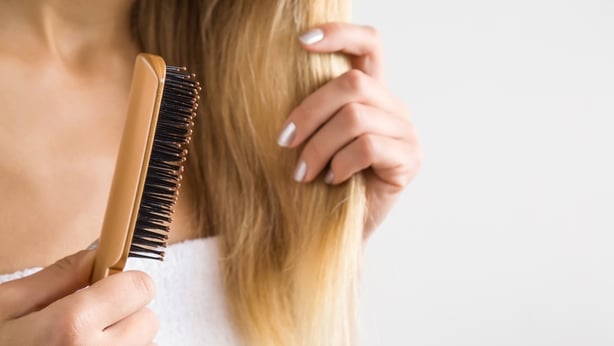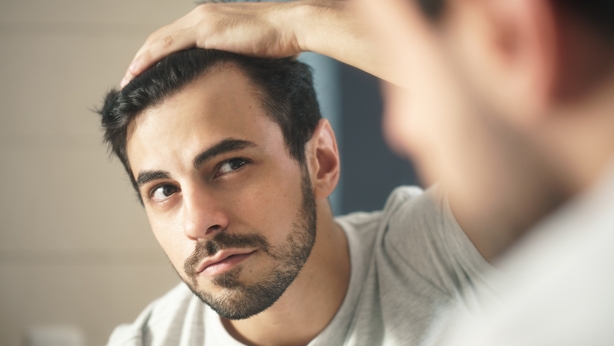Dr. Rosemary Coleman joined Claire Byrne on RTÉ Radio 1 to discuss alopecia, hair loss & thinning hair. Listen back above.
Despite simply meaning "hair loss", Dr. Coleman says that alopecia is a term that "strikes a lot of fear in people". There are many causes behind alopecia ranging from heredity and hormonal changes to medical conditions or simply aging, but she insists there are plenty of avenues to explore when it comes to hair loss.
Other than genetics, the most common cause of alopecia, says Dr. Colman, is telogen effluvium, which is most often seen following childbirth but has also become more common in the past two years due to the pandemic.
"Your hair gets lovely and thick in pregnancy when your body is busy growing a baby, so your hair rests, it doesn't shed. Approximately 50 to 60 days after a severe trauma, be it a physical trauma like childbirth or an illness or a grievance, people often say 'I'm suddenly shedding my hair' and they see it all over the bathroom floor, and it's very distressing."

As well as the societal stress of the pandemic and its resulting lockdowns, Dr. Colman says that COVID-19 itself may have led to telogen effluvium in some cases.
In fact, a lot of autoimmune disorders such as lupus or thyroid disease as well as bacteria and infections such as fungal infections can lead to hair loss, as can many drugs such as immunosuppressants or chemotherapy.
However, she is quick to remind listeners that even the healthiest of us will experience hair loss throughout our lives.
"Even in a perfectly healthy person with a perfectly healthy head and no genetic history, all of us naturally lose hair with age. It's the rare person who in their 80s has a thick head of hair. At the age of 50, we have approximately 50% of the hair follicles we had the day we were born.
"It is natural for hair to thin, but that doesn't mean you have to put up with it."

According to Dr. Coleman, a healthy and well-balanced diet is essential to a healthy head of hair, especially one rich in iron, protein, and omega threes. It's also a good idea to take multivitamins and make sure you have enough vitamin D.
If you are on any medications, she recommends checking in with your GP to see if that could cause any issues with hair loss.
Externally, Dr. Coleman suggests cutting back on styling your hair with too many heat products such as blow drying or styling tools such as straighteners and curlers.
You may also consider changing your hairstyle as anything that causes the hair to be pulled tight, such as severe up-dos or cornrows, can lead to traction alopecia.
"You can be putting pressure on the hair follicle and you can cause scarring and alopecia, so be gentle with the hair."
To listen to Dr. Coleman answer listeners' questions, listen back to RTÉ Radio 1 above.

